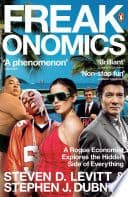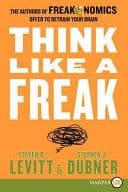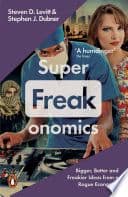
Freakonomics:
A Rogue Economist Explores the Hidden Side of Everything
'Dazzling ... a delight' - Economist
DIFFICULTY
intermediate
PAGES
230
READ TIME
≈ 300 mins
DIFFICULTY
intermediate
PAGES
230
READ TIME
≈ 300 mins
About Freakonomics
Economist Steven Levitt and journalist Stephen Dubner turn economics into detective work, using data to uncover the hidden incentives shaping everyday behaviour. Freakonomics isn’t about markets or money—it’s about why people cheat, lie, or cooperate when the rules and rewards shift.
From teachers and sumo wrestlers gaming performance metrics to real estate agents exploiting insider knowledge, the authors reveal how misaligned incentives produce predictable distortions. They trace how information gaps and moral assumptions cloud judgment—and how unconventional data can cut through both.
Playful yet provocative, Freakonomics invites readers to see the hidden side of everything. It’s a guide to thinking empirically in a world full of easy explanations—and a reminder that the simplest questions often uncover the biggest surprises.
What You'll Learn
- See how incentives quietly shape human behaviour in everyday contexts
- Differentiate correlation from causation and avoid common data fallacies
- Apply data-driven thinking to challenge conventional wisdom and narratives
- Understand information asymmetry and its impact on markets and decision-making
- Adopt a "rogue economist" mindset for framing better questions and analyses
Key Takeaways
- Incentives shape outcomes
- Data beats conventional wisdom
- Correlation ≠ causation
- Information asymmetry matters


